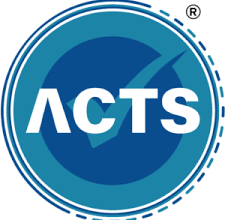In today’s digital age, having a robust online presence is crucial for insurance companies. However, simply having a website is not enough.
To truly stand out and attract potential clients, insurance agencies must invest in search engine optimization (SEO).
This is where insurance SEO experts come into play. These professionals specialize in optimizing insurance websites to rank higher on search engine results pages (SERPs), thereby increasing visibility, driving traffic, and ultimately maximizing return on investment (ROI).
This blog will delve into how insurance SEO experts turn keywords into conversions and maximize ROI.
Understanding the Importance of SEO in the Insurance Industry
The insurance industry is highly competitive. Potential clients often turn to search engines like Google to find insurance providers, compare policies, and read reviews.
Therefore, ranking high on search engine results can significantly impact an insurance company’s ability to attract and convert leads.
Insurance SEO experts understand the unique challenges and opportunities within the industry. They leverage their knowledge to create tailored strategies that address the specific needs of insurance companies.
This targeted approach is crucial for standing out in a crowded market and ensuring that potential clients can find and choose your services over competitors.
Keyword Research: The Foundation of SEO
Keyword research is the cornerstone of any successful SEO strategy. Insurance SEO experts begin by identifying the most relevant and high-performing keywords related to the insurance industry.
These keywords are the terms and phrases that potential clients are likely to use when searching for insurance services online.
SEO experts use various tools like Google Keyword Planner, SEMrush, and Ahrefs to conduct effective keyword research. They analyze search volume, competition, and relevance to identify the best keywords to target.
For instance, keywords such as “affordable car insurance,” “best home insurance,” and “life insurance quotes” might be identified as high-value keywords that can drive significant traffic to an insurance website.
On-Page Optimization: Making Your Website SEO-Friendly
Once the right keywords are identified, insurance SEO experts focus on on-page optimization. This involves optimizing various website elements to ensure it is search engine-friendly and ranks higher for the targeted keywords.
Key aspects of on-page optimization include:
- Title Tags and Meta Descriptions: Crafting compelling and keyword-rich title tags and meta descriptions that accurately describe the content of each page.
- Header Tags (H1, H2, H3, etc.): Using header tags to structure content logically and include relevant keywords.
- Content Quality: Ensuring that the website’s content is informative, engaging, and optimized for the target keywords. This might involve creating blog posts, articles, and landing pages that provide valuable information to potential clients.
- Internal Linking: Establishing a strong internal linking structure to help search engines understand the site’s hierarchy and improve user navigation.
- URL Structure: Creating clean and keyword-friendly URLs that are easy for search engines and users to understand.
Technical SEO: Ensuring a Smooth User Experience
Technical SEO is another critical component of maximizing ROI. Insurance SEO experts work to ensure that the technical aspects of a website are optimized for search engines. This includes:
- Website Speed: Ensuring that the website loads quickly, as slow-loading sites can negatively impact user experience and search rankings.
- Mobile-Friendliness: Optimizing the website for mobile devices, as a significant portion of users access the internet via smartphones and tablets.
- Secure Sockets Layer (SSL): Implementing SSL certificates to ensure the website is secure, can also positively impact search rankings.
- XML Sitemaps: Creating and submitting XML sitemaps to search engines to ensure all pages are indexed and crawled.
- Robots.txt: Optimizing the robots.txt file to guide search engine crawlers on which pages to index and which to ignore.
Off-Page SEO: Building Authority and Trust
Off-page SEO involves activities that take place outside of the website but significantly impact its search engine rankings. Insurance SEO experts focus on building the website’s authority and trust through various off-page SEO strategies, including:
- Backlink Building: Acquiring high-quality backlinks from reputable websites in the insurance industry. These backlinks act as votes of confidence, signalling to search engines that the website is credible and authoritative.
- Guest Blogging: Writing and publishing articles on reputable insurance-related blogs and websites to gain exposure and earn valuable backlinks.
- Social Media Marketing: Leveraging social media platforms to promote content, engage with potential clients, and drive traffic to the website.
- Online Reviews and Reputation Management: Encouraging satisfied clients to leave positive reviews on platforms like Google My Business, Yelp, and industry-specific review sites. Managing and responding to reviews is also crucial for maintaining a positive online reputation.
Local SEO: Targeting Local Clients
For many insurance companies, targeting local clients is essential. Local SEO strategies help insurance agencies appear in local search results and attract clients within their geographic area. Insurance SEO experts implement local SEO tactics such as:
- Google My Business Optimization: Creating and optimizing a Google My Business profile to ensure the company appears in local search results and on Google Maps.
- Local Citations: Ensuring the company’s name, address, and phone number (NAP) are consistent across all online directories and citation sites.
- Local Content: Creating content that is relevant to the local audience, such as blog posts about local insurance regulations, events, and community involvement.
Monitoring and Analytics: Measuring Success
The final piece of the puzzle is monitoring and analytics. Insurance SEO experts use various tools, such as Google Analytics and Google Search Console, to track the performance of their SEO efforts. Key metrics to monitor include:
- Organic Traffic: The number of visitors coming to the website through organic search results.
- Keyword Rankings: The positions of targeted keywords in search engine results pages.
- Conversion Rate: The percentage of visitors who take the desired action, such as filling out a contact form or requesting a quote.
- Bounce Rate: The percentage of visitors who leave the website after viewing only one page.
By analyzing these metrics, insurance SEO experts can identify what is working and what needs improvement. This data-driven approach allows for continuous optimization and ensures that the SEO strategy remains effective in maximizing ROI.
Conclusion
In the competitive world of insurance, having a strong online presence is crucial for success. Insurance SEO experts play a vital role in transforming keywords into conversions and maximizing ROI for insurance companies.
By optimizing keywords, on-page and technical elements, off-page SEO, local targeting, and monitoring performance, experts help insurance agencies attract more clients and grow.
Investing in professional SEO services is a smart move for any insurance company looking to thrive in the digital age.




